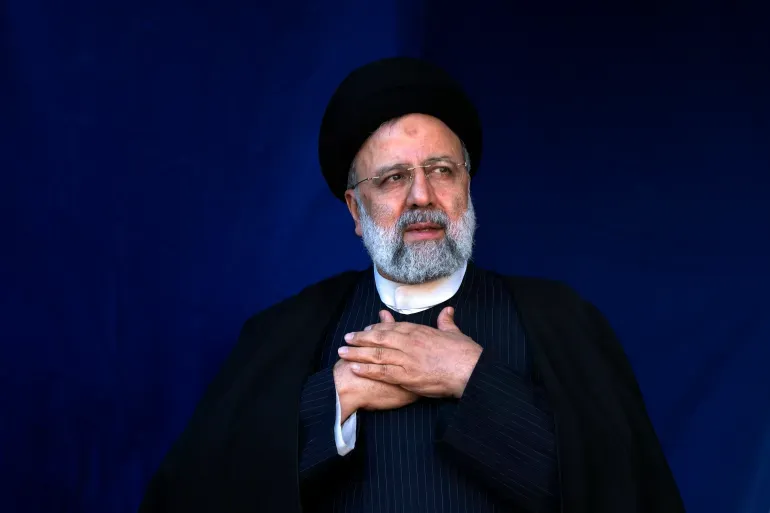Iranian President Ebrahim Raisi Killed in Helicopter Crash
Iranian President Ebrahim Raisi and several senior officials were killed on Sunday in a helicopter crash in northwestern Iran, according to state media.

Iranian President Ebrahim Raisi and several senior officials were killed on Sunday in a helicopter crash in northwestern Iran, according to state media. Raisi, 63, was returning from an official visit to Azerbaijan when the helicopter went down near the city of Varzaghan due to a technical malfunction.
The Crash and Immediate Aftermath
The crash also claimed the lives of Foreign Minister Hossein Amir-Abdollahian and other passengers, including a provincial governor. Rescue teams located the wreckage after an intensive overnight search hampered by dense fog. The head of Iran's Red Crescent confirmed that there were no survivors.
Raisi's Controversial Tenure
Ebrahim Raisi, a hardline cleric close to Supreme Leader Ayatollah Ali Khamenei, became president in 2021 after an election marked by the disqualification of other candidates. His presidency was characterized by a brutal crackdown on anti-government protests and a hardline stance in nuclear negotiations. Raisi was under U.S. sanctions for his involvement in the mass execution of political prisoners in 1988 and various human rights abuses. He was considered a potential successor to the 83-year-old Khamenei.
Reactions and Next Steps
Supreme Leader Khamenei urged calm, assuring that state affairs would continue without disruption. Condolences poured in from global leaders, highlighting Raisi's significant political ties, particularly with Russia and China. Under Iran's constitution, First Vice President Mohammad Mokhber will act as president until a new election is held within 50 days. Mokhber, a hardliner close to Khamenei, has already convened an emergency cabinet meeting.
Global and Domestic Implications
Raisi's death creates a power vacuum and uncertainty over the eventual succession of the Supreme Leader. It is expected to intensify power struggles within Iran's conservative ranks. The crash is a significant setback for Iran's leadership amidst ongoing tensions with the West over its nuclear program and support for regional proxies. This incident follows months of anti-government protests that posed a substantial challenge to the Islamic Republic.
The cause of the crash remains officially undisclosed, though adverse weather conditions, including heavy fog, are cited as contributing factors. While some public and media speculation exists about potential foul play, no official suggestion of sabotage has been made.
International Condolences
- Russia: President Vladimir Putin and Foreign Minister Sergey Lavrov praised Raisi's efforts to strengthen ties with Russia.
- China: President Xi Jinping expressed deep condolences, highlighting Raisi as a good friend to China.
- Turkey: President Recep Tayyip Erdogan and Foreign Minister Hakan Fidan expressed solidarity and condolences.
- Pakistan: Declared a national day of mourning, with Prime Minister Shehbaz Sharif expressing profound sadness.
- India: Prime Minister Narendra Modi conveyed deep shock and sadness.
- Qatar and UAE: Leaders expressed sincere condolences and solidarity.
- European Union: Expressed sympathy through President Charles Michel.
- Hezbollah: Mourned Raisi as a staunch defender of their causes.
The international community's responses underline Raisi's influential role in regional politics despite his controversial tenure.
Transition of Power
Mohammad Mokhber, acting president, is part of a council organizing the upcoming presidential election. Candidates will be vetted by the Guardian Council, ensuring the continuation of hardline policies. The new president will likely be another ultra-conservative, aligning closely with the Supreme Leader's agenda. This transition period will be critical for Iran, potentially affecting both domestic stability and international relations.
The aftermath of Raisi's death will have lasting repercussions on Iran's political landscape and its position in global affairs. The immediate focus will be on managing the transition of power and organizing new elections amidst a turbulent period for the country.




